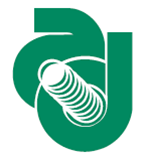Speaker
Description
The electron electric dipole moment (e-EDM) is a model-independent probe of parity and time-reversal violation at energies beyond the ones that can be reached in particle colliders. The PHYDES project is an R&D experiment funded by CSN V of INFN aimed to test innovative approaches for e-EDM studies. In particular, the proposed idea is to use diatomic polar molecules, where e-EDM effects are amplified because of the large internal molecular field, embedded into cryogenic matrices made of unreactive elements. In such solids a diatomic molecule substitutes one the atom or molecule of the host matrix and, since the host-guest ratio can be 1:200, the density of the host molecules could be as large as $10^{22} $cm$^{−3}$.
The main goal of the PHYDES R&D program would be to try to embed Barium Fluoride (BaF) molecules in a solid matrix of para-Hydrogen (p-H2) and study their alignment with an external electric field and verify the assumption that BaF molecules are all polarized in p-H2 matrix.
The set-up we are developing to grow cryogenic crystal of around 1 cm$^3$ doped with about 100 ppm of BaF, consists of five different chambers. In the first one the BaF molecues are produced, ionized, accelerated and focused into the Wien Filter chamber which is necessary for mass selection. Then the molecular beam will be neutralized and cooled in order to prepare the BaF for the insertion in cryogenic crystal. In parallel we are developing an opportune system for para-Hydrogen production and storage. Finally the last chamber is the condensation chamber where a crystal of p-H2 doped with BaF can be grown through the matrix isolation technique.
| Collaboration | Phydes project |
|---|

